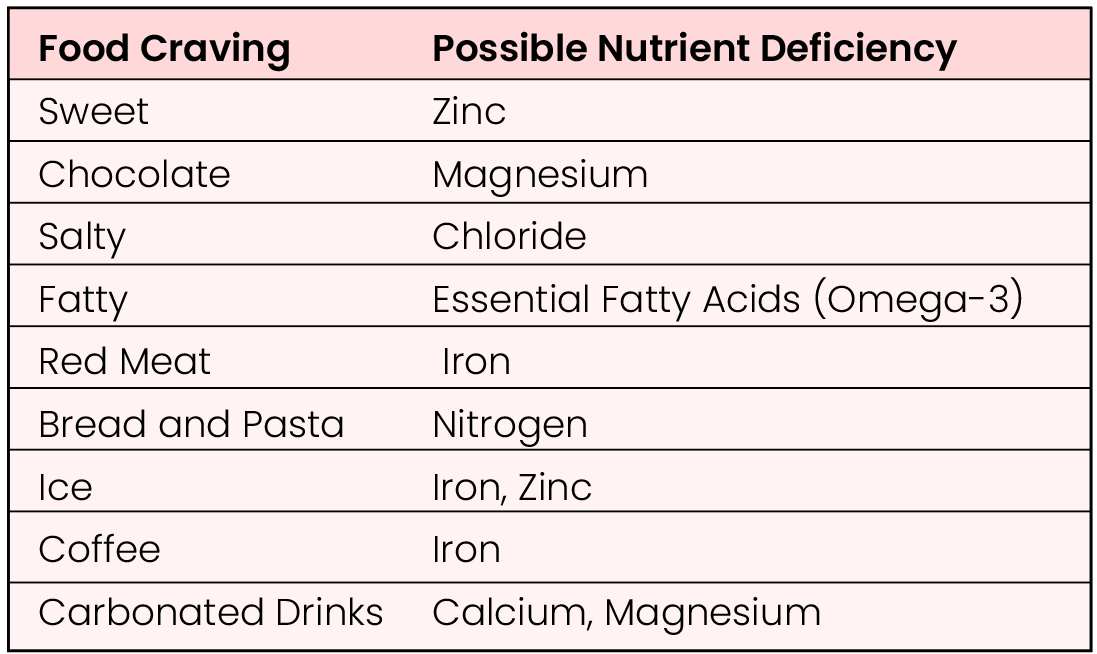
Have you ever experienced intense cravings for certain foods that you just couldn’t ignore? Whether it’s a sudden desire for sweets, a yearning for chocolate, or a craving for something salty, our bodies often send us signals in the form of cravings. While occasional cravings are a normal part of life, persistent cravings may indicate underlying nutrient deficiencies.
Understanding the connection between food cravings and nutrient deficiencies can offer valuable insights into our dietary needs and overall health. For instance, a craving for sweets might be your body’s way of signalling a need for zinc, while a hankering for chocolate could suggest a magnesium deficiency. In this comprehensive guide, we’ll explore common food cravings and the potential nutrient deficiencies they may indicate.
Common Food Cravings and Their Possible Nutrient Deficiencies

Understanding these associations can empower individuals to recognize potential nutrient deficiencies and make informed dietary choices to address them. However, it’s important to note that cravings can also be influenced by other factors such as stress, lack of sleep, a high-carbohydrate diet, and dehydration.
Other Factors Contributing to Food Cravings
Stress: High levels of stress can trigger cravings for comfort foods high in sugar and fat, providing temporary relief but often leading to overeating and weight gain.
Lack of Sleep: Inadequate sleep can disrupt hormonal balance, increasing cravings for sugary and carbohydrate-rich foods as the body seeks quick sources of energy.
High Carbohydrate Diet: Consuming a diet high in refined carbohydrates can cause fluctuations in blood sugar levels, leading to cravings for even more carbohydrates to maintain energy levels.
Dehydration: Thirst signals from the body can be mistaken for hunger, leading to cravings for salty or savoury foods when, in reality, the body is in need of hydration.
By addressing these underlying factors and making mindful dietary choices, individuals can effectively navigate and manage their cravings, promoting overall health and well-being. It’s crucial to bear in mind that consulting with a healthcare professional or registered dietitian is highly recommended for personalized nutritional advice tailored to your specific needs. So, the next time a craving strikes, tune into what your body might be signalling—it could hold the key to meeting your nutritional needs and attaining optimal health.



